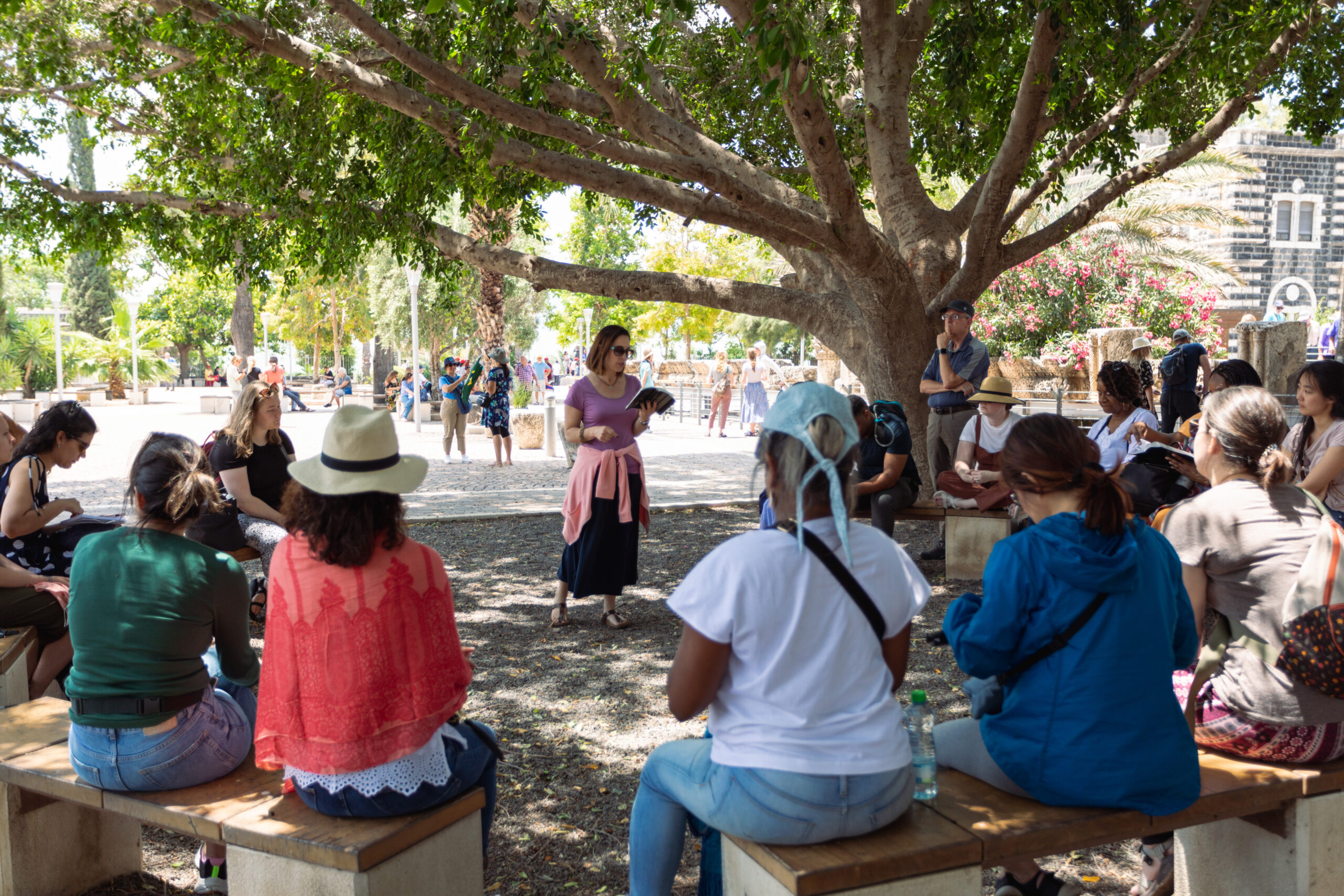
Blessed Are the Peacemakers
By Pastor Aaron Graham
In today’s culture, peacemaking often seems like a way to deflect conflict or avoid the inevitable. It’s like trying to prevent a storm rather than harnessing its power. Imagine, even the Jews of Jesus’ time must have been shocked at His words in Matthew 5:9: “Blessed are the peacemakers, for they will be called children of God.”
Here, the Jewish people of that day had been eagerly waiting for the Messiah, a powerful and militant leader who would deliver them from political oppression. But then, the unexpected twist of God’s plan unfolds, revealing a Kingdom mindset that flips our world’s values upside down. Jesus changed everything.
Jesus’ instruction through the Beatitudes gives us a clear picture of who God calls us to be as peacemakers. But what does it mean to be a peacemaker in your marriage, your family, or even in our political context today? Here are seven attributes we can focus on to be peacemakers daily.
Peacemakers are pure in heart.
The peacemaker with a pure heart is undivided in their heart and is not wavered by the troubles of this world or the sin around them. These individuals are the ones who dig deep within themselves, confront their sins, and can look clearly at the fractured and brokenness of our world. They understand peace doesn’t come through aggressive action or quick resolve but from purity of heart.
Peacemakers are not passive.
The peacemaker is not passive in action. They are not co-dependent on others and do not delay the inevitable to avoid conflict. They are the embodiment of proactive change.
The peacemaker is someone who takes action to establish justice and righteousness. They address conflict head-on but not through violence or aggression. They take steps to actively work towards solving problems and being solution-oriented when conflict and trouble arise, all aiming for a resolution focused on peace.
Jesus doesn’t say to be peace lovers but to be peacemakers. He calls believers to stand in the gap when hardship comes. True peace doesn’t come from avoiding the issues at hand but from having the courage to face the problem, even if the pathway to peace produces hardship and struggle. The peacemaker takes active steps to pursue peace and seek a resolution.
Peacemakers are selfless.
The value of being selfless can be challenging in our world today. The peacemaker who embodies this virtue stands out. They have the skill set to separate themselves from conflict. They can alter their focus on the bigger picture rather than how the conflict may affect them personally. By maintaining a healthy distance, they can stay neutral and not be overly sensitive or defensive toward the issue.
The selfless peacemaker has learned to hold their power rightly, not by suppressing it, but by placing their power under authority and befriending meekness.
Meekness is the ability to harness one’s strength for the greater good of others. Meekness helps us to know how to control our tongue, know when to speak and when to listen, and how to cultivate an approachable and empathetic manner towards others.
When focusing on being selfless, the peacemaker doesn’t make the conflict about themselves but focuses on the issue with a clear mind, an open heart, listening ears, and a tongue that speaks with wisdom and intentionality – all in the name of seeking peace.
Peacemakers are all about the cross of Jesus Christ.
When we fix our eyes on the cross, it changes everything. We can see that Jesus isn’t just our peacemaking model, but Jesus himself is the very embodiment of our peace. We cannot pursue peace within our strength, but it’s a gift that was made possible through the profound sacrifice of Jesus on that very cross. Because of Jesus, we can experience true peace and extend that to others.
Peace is more than just a calming presence; it’s the true reconciling of two into one. It’s what Christ has done for us by bridging the divide between us and the Father that sin initially caused. Through this, we are now made one with God, the Father. Peacemaking is all about getting right with God, which only happens at the foot of the Cross.
It’s at the cross that something supernatural happens. Even the world’s troubles today cannot be solved by being intellectually convinced that we need to be peacemakers. What we truly need is the power of God and the power that the Cross of Jesus Christ brings through redemption, restoration, and reconciliation.
The cross is the ultimate example that we can only seek peace by knowing peace Himself – Jesus.
Peacemakers engage in costly work.
Seeking peace as a Christian can often come at a cost and be a long road that doesn’t offer any shortcuts. As believers, we understand the importance of taking the proper steps to pursue unity, no matter the consequences it may bring.
Peacemaking is hard work. It’s about confronting the reality of sin, not avoiding it, and striving to build bridges between those at odds. The mission can be costly because it places the peacemaker in the middle of two opposing sides.
The peacemakers willingly step into challenging conversations, venture into troubling neighborhoods, and willingly step into the brokenness of this world with a non-anxious presence. They understand that their role isn’t simply resolving something unresolved. They can rely on a more profound independence to speak biblical truth and stand unwaveringly to their biblical convictions as believers.
Peacemakers exercise spiritual authority.
As faithful followers of Christ and peacemakers, we have a remarkable power – the authority to declare peace through the active discipline of prayer. Through prayer, we can align our hearts with God and be a channel for God’s peace amid any chaotic situation.
In our prayers, we don’t just speak, but we declare the very truth of God to a broken and fallen world in disarray. Through prayer, we become instruments God can use to do transformative work. The power of prayer allows us to actively partner with God to see Him renew hearts, heal others, and ultimately bring restoration to those distant from God.
Peacemakers are children of God.
As children of God, we are to display all the attributes of being a peacemaker. We do not get to pick and choose, but it is a comprehensive calling.
Jesus says we are blessed as children of God because He has set us apart. We are different from everyone else in our actions, work, and approach to resolving conflict and discord in today’s troubling world. Peacemaking is no longer a duty but has become our vocation as believers to pursue peace and share the hope of Christ.
God came to give life abundantly through sending peace in the example of Jesus Christ, our ultimate peacemaker. It’s our privilege to extend that out in abundance to the world around us every day.
The beauty of peacemaking finds its ultimate example in the way God orchestrated peace with the brokenness of the world through His Son, Jesus Christ. Here, we see the perfect example of embodying the life of a peacemaker.
Jesus was pure in heart; He did not avoid conflict but used His whole life to aim toward sharing the hope of the love of God. While He lived on this earth, He spoke of peace with authority and fulfilled His vocation as the son of God. Jesus displayed the attributes of a peacemaker as He didn’t make this work about Himself or His own needs, but He humbled himself to death, even death on a cross, so that we could be brought into peace with God.
Jesus’ commission in Matthew 5:9 wasn’t just for a time then, but it’s for our time now as we can seek to be peacemakers in a world filled with conflict and war. God has equipped us with everything we need to be reconcilers of peace to our broken world.
Watch the message this piece was derived from on our YouTube.
